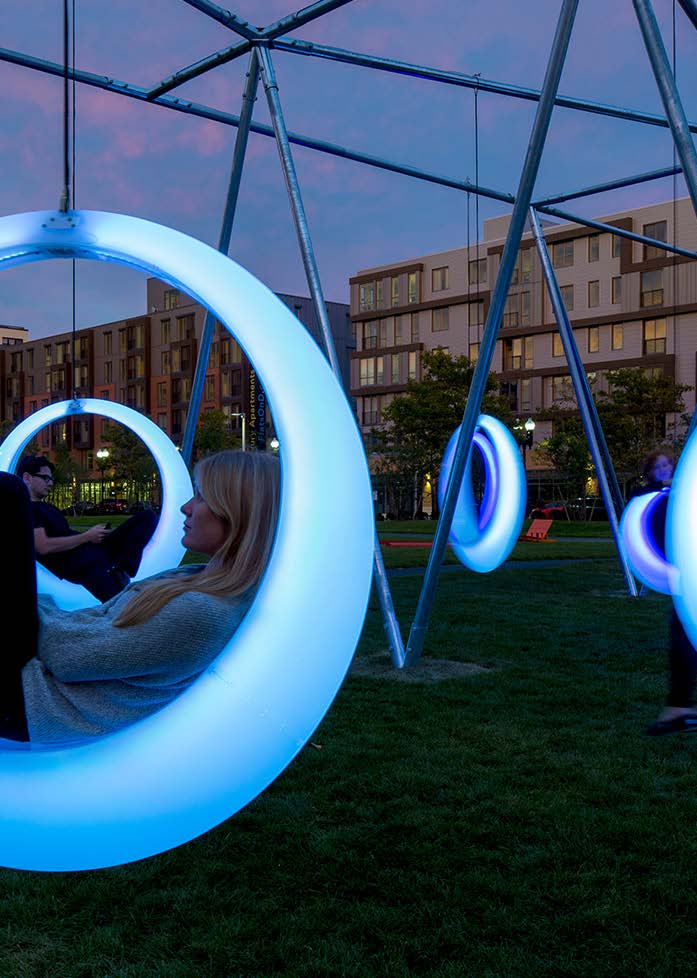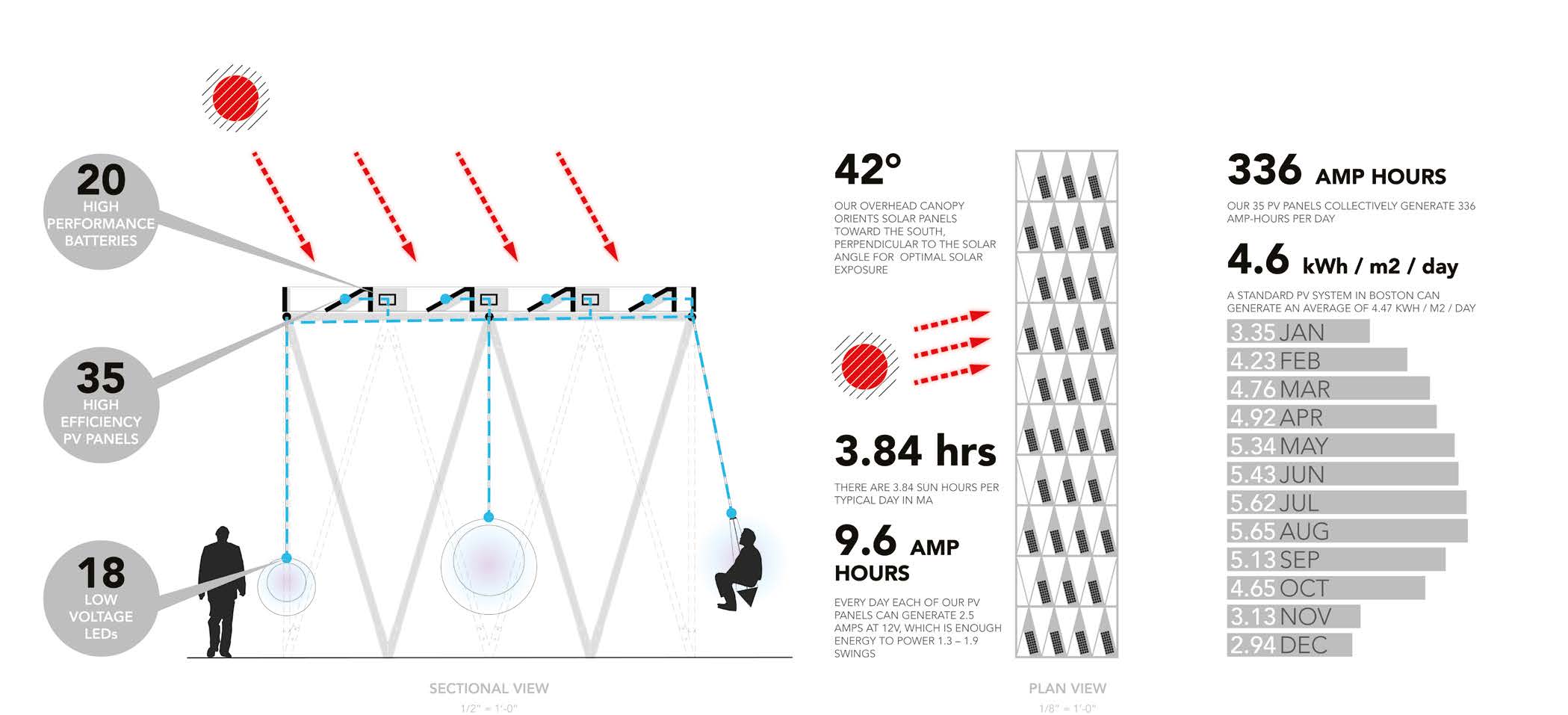| Line 55: | Line 55: | ||
| Mechanics_Hypothesis = 1 | | Mechanics_Hypothesis = 1 | ||
| Mechanics_Metagame = 1 | | Mechanics_Metagame = 1 | ||
}}{{SPACE | |Technology_&_Tools_Analoge_Tangibles=1|Technology_&_Tools_AR_VR=1|Technology_&_Tools_Audio_Visual=1|Technology_&_Tools_Data_AI=1|Technology_&_Tools_Data_Collection_Visualization=1|Technology_&_Tools_Digital_Interface=1|Technology_&_Tools_Mobile=1}}{{SPACE | ||
| Scope_Pre-defined = 1 | | Scope_Pre-defined = 1 | ||
| Scope_Crowd = 1 | | Scope_Crowd = 1 | ||
Revision as of 13:59, 21 July 2020
Author: |
HÖWELER + YOON ARCHITECTURE |
BOSTON, USA, 2014 | |
| http://www.howeleryoon.com/work/48/swing-time | |
Swing Time is a temporary installation developed within the framework of the Massachusetts Convention Center Authority’s urban renewal initiative. The installation integrates energy generation and plays, demonstrating the relation between production and consumption.
The urban playscape is composed of 18 welded polypropylene swings, which hang under a customfabricated solar canopy. The swings are designed in three different sizes so that the community can engage and play with Swing Time as individuals or in groups.
Swing Time uses solar energy harvested from a series of photovoltaic cells that translate UV rays into electrical illumination.
Responsive in real-time to environmental conditions, the playscape’s illumination corresponds to a daily accumulation of solar power, translating UV rays into a visual register that indexes the abundance of solar energy. Photovoltaic cells integrated into the canopy capture and store solar energy during daylight hours. Through an automated system, the accumulated energy is distributed into LED lights located on the swings.
Moreover, accelerometers installed within each swing directly respond to the acceleration forces and tilt exerted by users.
When the swings are not moving, they emit soft White light, thanks to the energy collected during the day.
As the swings increase in momentum from a static position, a microcontroller adjusts the LED output through a gradient scale from white blue to purple.
The responsive elements of Swing Time invite users to interact with the swings and with each other. The overall theme of Swing Time is to entice people of all ages to engage in active public play. Public play creates a community laboratory and raises awareness of energy consumption and production
- Purpose Activation
- Purpose Interconnection
- Purpose Raise awareness
- Purpose Educate
- Purpose Visualise needs
- Purpose Simulate impact of decisions
- Purpose Decision making
- Purpose Designing
- Co-Creation Co-analysis
- Co-Creation Co-design
- Co-Creation Co-implementation
- Co-Creation Co-maintenance
- Co-Creation Co-monitoring
- Outcome Decision making
- Outcome Knowledge
- Outcome Design
- Outcome Inclusion
- Outcome Awareness
- Outcome Partnership
- Mechanics Role play
- Mechanics Rule based play
- Mechanics Location based
- Mechanics Simulations
- Mechanics Mapping
- Mechanics Geolocation
- Mechanics Hypothesis
- Mechanics Metagame
- Aesthetics Sensation
- Aesthetics Imagination
- Aesthetics Assemblage
- Aesthetics Realism
- Scale Metropolitan
- Scale District
- Scale Neighbourhood
- Scale Street
- Audience Community
- Audience Planning expert
- Audience Stakeholders
- Scope Individual
- Scope Small group
- Scope Crowd
- Scope Pre-defined




